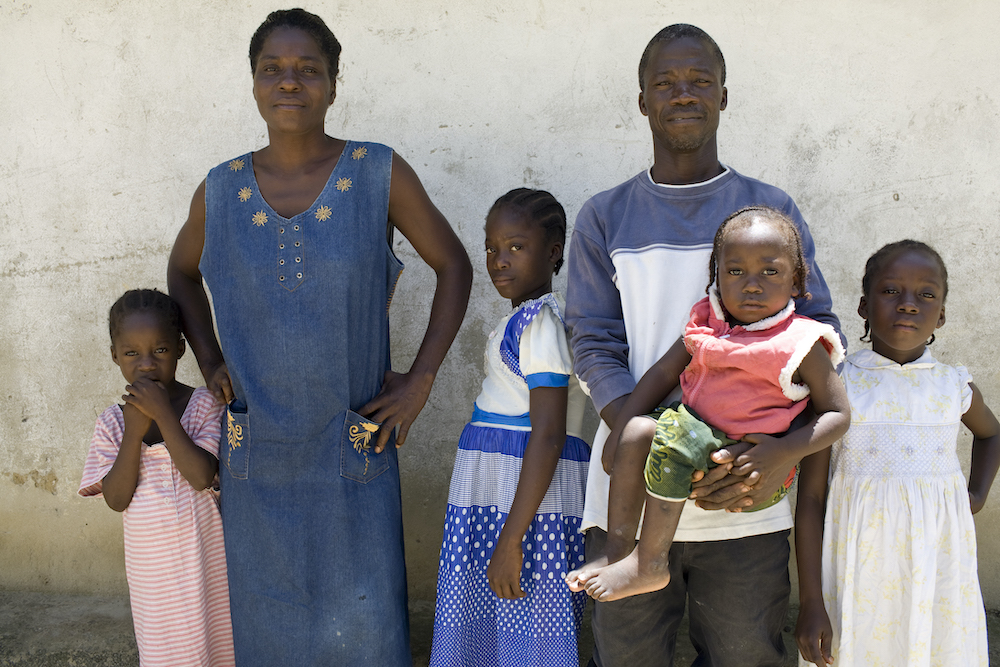The Effect of Cash Transfers and Market Access on Households in Rural Liberia and Malawi

Abstract
A body of research supports cash transfers as a way to improve the lives of vulnerable and poor populations, but few studies have examined how the impacts change over time. In addition, poor rural households face institutional and market obstacles, and transfers alone may not be enough to overcome these barriers. In Liberia and Malawi, researchers are partnering with IPA, GiveDirectly, and USAID to evaluate the impact of an unconditional cash transfer and market access program on food security, wealth, resilience, intimate partner violence, and psychological well-being over four years.
Policy Issue
A growing body of evidence suggests that cash transfers can substantially improve the lives of vulnerable and poor populations. The rationale behind this is they help households meet basic needs — including food, shelter, clothing, health — and simultaneously ease investment in productive income-generating activities that could have more lasting effects. Yet some literature suggests that transfers alone are not enough to sustainably pull poor populations (especially the ultra-poor) out of poverty.1 One reason for this may be that while cash transfers remove immediate liquidity constraints, poor rural households still face several other institutional and market barriers. An example of these types of barriers are common in the agricultural sector where more than two-thirds of the population in poor countries work.2 Combining cash transfers with increased access to markets has the potential to improve outcomes for rural agricultural households.
Context of the Evaluation
Both Liberia and Malawi are low-income countries with high rates of poverty who are heavily dependent upon agriculture. In Liberia, almost half of the population lives below the international poverty line of US$1.9, and more than 60 percent rely on agriculture as their primary livelihood activity3. Despite its labor force importance, sector productivity is low due to Liberia's lack of basic infrastructure. Farmers often lack equipment, fertilizers, pesticides, and storage capacity. Still, the main challenge remains farm-to-market roads as Liberia has one of the worst road networks globally, with only 660 km of paved roads in the entire country.4
Like Liberia, more than half of the Malawi population lives in poverty, and more than 80 percent of the total population works mainly in farming. In both countries, GiveDirectly provided an unconditional cash transfer to households through mobile money. In Liberia, the program was implemented in six districts close to the capital, during two periods (2018-2019 and 2019-2020). In Malawi, the program was implemented in two districts of the southern region during 2019-2020.
Details of the Intervention
Researchers partnered with IPA, GiveDirectly, and USAID to conduct a randomized evaluation to measure the impact of an unconditional cash transfer and market access program on a set of outcomes including food security, wealth, resilience, intimate partner violence against women, and psychological well-being. Additionally, researchers will analyze the effect of cash on child malnutrition in Malawi.
The 600 villages in the study (300 in Liberia and 300 in Malawi ) were randomly assigned to one of four groups:
- Cash recipients (100 villages in Liberia and Malawi each): These households were offered cash transfers via a mobile money platform. Researchers randomly sorted these villages into three groups to receive varying amounts of cash—US$250, US$500, or US$750—in order to examine the different effects of the transfer on a set of outcomes. These sums are paid out in monthly $250 increments, so that villages receive 1, 2, or 3 payments. In addition, in Liberia, villages are randomized into being paid this amount quarterly (spread out every 3 months for a year) or in up to three consecutive months.
- Market access (50 villages): Households assigned to this group received a voucher to defray transportation costs to access agricultural inputs in one-time market fairs. In Liberia, agricultural dealers set up stalls at local market centers where inputs were made available. In Malawi, a major agricultural input dealer set up events at prominent locations (such as primary schools).
- Cash plus market access (50 villages): As with households that received the cash transfers, households in this group were also randomly divided into three sub-groups and were offered cash transfers of either US$250, US$500, or US$750, and were also invited and provided with free transport to attend the market fairs.
- Comparison (100 villages in Liberia and Malawi each): Households in this group were not offered the above interventions at the time of study.
Researchers conducted an initial survey between November and December 2018 (for phase 1) and October-December (for phase 2) in Liberia and April-August 2019 in Malawi. In addition, 600 households in each country were enrolled in a high-frequency phone survey to allow researchers to better assess the dynamic impacts of the cash transfers over time.
Researchers analyzed both the direct effects of cash transfers without market access and the effects of both market access and cash. In addition, the project collected data on the prices of food items in 95 markets in Liberia and 80 markets in Malawi, divided between areas that received cash transfers and those that did not, in order to estimate the effect of cash transfers on prices.
After the COVID-19 pandemic (in May 2020), the research team began measuring respondents’ awareness of COVID-19 virus, behavioral changes, and disruptions from the pandemic, as well as its impacts on income and other outcomes. Read more here.
Results and Policy Lessons
Project ongoing; results forthcoming.
Sources
1 Kidd, Stephen. (2017). The Effectiveness of the Graduation Approach: what does the evidence tell us?.
2 Max Roser, 2013 . "Employment in Agriculture".
3 The World Bank. “Liberia,” 2016. https://data.worldbank.org/country/LR.
4 World Food Programme, “Logistics Capacity Assessment: Liberia Road Network” (2015). https://dlca.logcluster.org/display/public/DLCA/2.3+Liberia+Road+Network. Accessed July 16, 2020.












